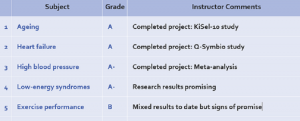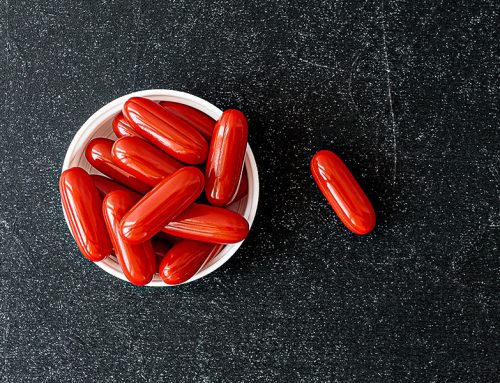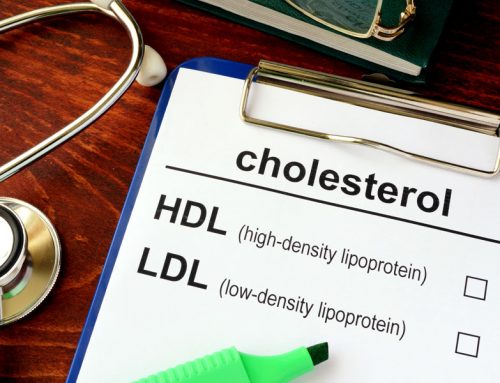Coenzyme Q10 as a nutritional supplement – if properly formulated – gets an A grade for performance. Coenzyme Q10 goes right to the head of the class on our list of daily nutritional supplements, right up there with vitamin D capsules, organic high-selenium yeast tablets, and fish oil capsules (if we don’t eat as much fish as we should).

As the fall semester 2017 drew to a close, I reviewed the published bio-medical documentation and assigned some performance grades to the nutritional supplement Coenzyme Q10. As might be expected of an “essential bio-nutrient,” Coenzyme Q10 maintained an exemplary grade point average.
Properly formulated Coenzyme Q10 supplements
Right. We want to get a supplement made with pharmaceutical-grade Coenzyme Q10 and manufactured under conditions of pharmaceutical control. We want a Coenzyme Q10 supplement that meets the following criteria:
- documented production with the same procedures as medicinal drugs
- documented same effective formulation in every batch
- documented beneficial health outcomes
End-of-the-year performance report card for a good Coenzyme Q10 supplement
Okay. Let’s see what kind of grades a pharmaceutical-quality Coenzyme Q10 supplement should get, subject by subject.

What better stocking stuffer for Mom and Dad, Grandma and Grandpa than a box of Coenzyme Q10 soft-gel capsules packed for freshness and safety in blister-packs?
Coenzyme Q10 and Ageing: A
Dr. Alehagen’s KiSel-10 study of the daily supplementation of healthy elderly Swedish citizens, all aged 70 years or more at the start of the study, showed the following significant health benefits in the Coenzyme Q10 and selenium group as compared to the placebo group [Alehagen]:
- 50% reduction in the risk of death from heart disease
- Positive effects on heart muscle bio-markers and on echocardiograms
- Decreased levels of bio-markers for oxidative stress and chronic low-grade inflammation
- Evidence of a beneficial interrelationship between Coenzyme Q10 and selenium
Research has shown that our bodies produce less and less Coenzyme Q10 as we pass from our 20s and increase in age [Kalén].
Coenzyme Q10 and Heart Failure: A
Dr. Mortensen’s Q-Symbio study of the daily supplementation of chronic heart failure patients demonstrated that Coenzyme Q10 significantly improved the symptoms and survival of chronic heart patients with a mean age of 63 years [Mortensen].
Coenzyme Q10 is especially necessary for heart disease patients taking a statin medication. The statin medication inhibits not only the body’s production of cholesterol but also the body’s production of Coenzyme Q10 [Okuyama].
Coenzyme Q10 and High Blood Pressure: A-
Dr. Rosenfeldt’s meta-analysis of studies of patients with hypertension concluded that Coenzyme Q10 supplementation can potentially lower systolic blood pressure by up to 17 mm Hg and diastolic blood pressure by up to 10 mm Hg without any significant side effects [Rosenfeldt].
A- because we would like to see more studies with larger sample sizes.
Coenzyme Q10 and Low-Energy Syndrome: A-
Dr. Judy’s research has shown that Coenzyme Q10 supplementation needs to be a life-long commitment for patients with chronic fatigue syndrome and other low-energy syndrome diseases. It takes long-term supplementation to regenerate atrophied mitochondria. Relapse is a very real danger if the Coenzyme Q10 supplementation ceases [Judy].
Again, A- because we would like to see more studies with larger sample sizes.
Coenzyme Q10 and Exercise Performance and Recovery: C
A grade of C because too few studies have been done, and the results from the studies have been mixed: some promising, some inconclusive. We need more studies of the effect of Coenzyme Q10 on exercise performance and recovery, differentiated between endurance training and strength training and carried out on more homogeneous samples.
There is, for example, some evidence that physical activity — exercise — affects Coenzyme Q10 levels in younger and older people differently [Del Pozo-Cruz].
Dr. Sarmiento and colleagues have done a systematic review of the studies of Coenzyme Q10 supplementation and exercise performance. They have concluded that Coenzyme Q10’s bio-energetic and antioxidant properties make Coenzyme Q10 supplements suitable to improve cellular energy production and to inhibit the age-related adverse effects of exercise [Sarmiento].
Coenzyme Q10 and Cancer (especially breast cancer): C
On the subject of cancer, and breast cancer in particular, Coenzyme Q10 supplementation has shown promise in several ways:
- Evidence of Coenzyme Q10 deficiency in cancer patients [Folkers]
- Biochemical rationale for the role of Coenzyme Q10 in adjuvant cancer therapy [Folkers]
- Improved survival of cancer patients on Coenzyme Q10 adjuvant therapy [Folkers; Hertz & Lister; Lockwood]
While on the subject of Coenzyme Q10 and cancer, we should note that certain cancer chemotherapy drugs, the class called anthracyclines, are known to have toxic effects on the heart muscle. Co-administration of Coenzyme Q10 with cancer chemotherapy drugs such as Adriamycin attenuates the toxic effects of the anti-tumor drugs [Lenaz].
Coenzyme Q10 and Parkinson’s disease: Incomplete
With respect to Coenzyme Q10 supplementation and Parkinson’s disease, the results of the available studies are inconclusive. Most promising: A 16-month study has shown that daily doses of 1200 milligrams per day in patients with early Parkinson’s disease have been well-tolerated and have been associated with a slowing of the deterioration of performance in Parkinson’s disease [Shults]. Furthermore, a four-week study has shown that daily doses of 360 milligrams per day are associated with moderate improvements of symptoms and performance in Parkinson’s disease patients [Muller].
Summary of Coenzyme Q10 performance in disease prevention
Sufficient scientific research has been done to show the benefits of supplementation with a properly formulated Coenzyme Q10 preparation:
- Necessary to replace age-related losses because of decreased biosynthesis
- Necessary to replace statin-related losses because of inhibited biosynthesis
- Necessary to prevent the heart muscle cells from becoming starved for energy
- Necessary to protect cells and lipids against oxidative damage
- Necessary to reduce the levels of low-grade chronic inflammation
- Necessary to preserve endothelial function
Sources
Alehagen, U., Aaseth, J., & Johansson, P. (2015). Reduced Cardiovascular Mortality 10 Years after Supplementation with Selenium and Coenzyme Q10 for Four Years: Follow-Up Results of a Prospective Randomized Double-Blind Placebo-Controlled Trial in Elderly Citizens. Plos One, 10(12), e0141641.
Del Pozo-Cruz, J., Rodríguez-Bies, E., Ballesteros-Simarro, M., Navas-Enamorado, I., Tung, B. T., Navas, P., & López-Lluch, G. (2014). Physical activity affects plasma Coenzyme Q10 levels differently in young and old humans. Biogerontology, 15(2), 199-211.
Folkers, K. (1996). Relevance of the biosynthesis of Coenzyme Q10 and of the four bases of DNA as a rationale for the molecular causes of cancer and a therapy. Biochem Biophys Res Commun, 224, 358–361.
Folkers, K., Osterborg, A., Nylander, M., Morita, M., & Mellstedt, H. (1997). Activities of vitamin Q10 in animal models and a serious deficiency in patients with cancer. Biochem Biophys Res Commun, 234, 296–299.
Folkers, K., Brown, R., Judy, W.V., and Morita, M. (1993). Survival of cancer patients on therapy with Coenzyme Q10. Biochem Biophys Res Commun, 192, 241–245.
Hertz, N., and Lister, R. E. (2009). Improved survival in patients with end-stage cancer treated with coenzyme Q10 and other antioxidants: a pilot study. The Journal of International Medical Research, 37, no. 6: 1961-1971.
Judy, W. V. & Folkers, K. (1993). Management of chronic fatigue syndrome patients with CoQ10. 8th. Intl. Symp. Biomed. and Clin. Aspects of CoQ, 55.
Kalen A., Appelkvist E.L., & Dallner G. (1989). Age-related changes in the lipid compositions of rat and human tissues. Lipids, 24(7):579–584.
Lenaz, G., Cavazzoni, M., Genova, M. L., D’Aurelio, M., Merlo Pich, M., Pallotti, F., & … Bovina, C. (1998). Oxidative stress, antioxidant defences and aging. Biofactors (Oxford, England), 8(3-4), 195-204.
Lockwood, K., Moesgaard, S., Hanioka, T., & Folkers, K. (1994). Apparent partial remission of breast cancer in “high risk” patients supplemented with nutritional antioxidants, essential fatty acids and coenzyme Q10. Molecular Aspects of Medicine, 15 Suppls231-s240.
Judy, W. V. & Folkers, K. (1993). Management of chronic fatigue syndrome patients with CoQ10. 8th. Intl. Symp. Biomed. and Clin. Aspects of CoQ, 55.
Mortensen, S. A., Rosenfeldt, F., Kumar, A., Dolliner, P., Filipiak, K. J., Pella, D., & Littarru, G. P. (2014). The effect of coenzyme Q10 on morbidity and mortality in chronic heart failure: results from Q-SYMBIO: a randomized double-blind trial. JACC. Heart Failure, 2(6), 641-649.
Muller, T., Buttner, T., Gholipour, A.F., & Kuhn, W. (2003). Coenzyme Q10 supplementation provides mild symptomatic benefit in patients with Parkinson’s disease. Neurosci Lett., 341(3):201-204.
Sarmiento, A., Diaz-Castro, J., Pulido-Moran, M., Kajarabille, N., Guisado, R., & Ochoa, J. J. (2016). Coenzyme Q10 Supplementation and Exercise in Healthy Humans: A Systematic Review. Current Drug Metabolism, 17(4), 345-358.
Shults, C.W., Oakes, D., & Kieburtz, K. (2002). Effects of Coenzyme Q10 in early Parkinson disease: evidence of slowing of the functional decline. Arch Neurol., 59(10):1541-1550.
The information in this review article is not intended as medical advice and should not be used as such.









Leave A Comment